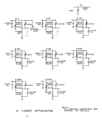Z: Difference between revisions
No edit summary |
No edit summary |
||
| Line 11: | Line 11: | ||
* [http://bama.edebris.com/manuals/tek/z/ Tektronix Type Z Manual (BAMA, offline?)] | * [http://bama.edebris.com/manuals/tek/z/ Tektronix Type Z Manual (BAMA, offline?)] | ||
<!-- * [http://w140.com/tek_fcp/tek_type_z_factory_cal_proc.pdf Tektronix Type Z Factory Calibration Procedure (PDF)] --> | <!-- * [http://w140.com/tek_fcp/tek_type_z_factory_cal_proc.pdf Tektronix Type Z Factory Calibration Procedure (PDF)] --> | ||
* [[Media:070-251.pdf|Tektronix Type Z Manual (PDF, OCR)]] | * [[Media:070-251.pdf|Tektronix Type Z Manual (PDF, OCR, bad-OCR)]] | ||
* [[Media:tek_type_z_bama_manual.pdf|Tektronix Type Z Manual (BAMA, PDF, OCR, bad-OCR)]] | * [[Media:tek_type_z_bama_manual.pdf|Tektronix Type Z Manual (BAMA, PDF, OCR, bad-OCR)]] | ||
* [[Media:tek_type_z_fcp.pdf|Tektronix Type Z Factory Calibration Procedure (PDF, OCR)]] | * [[Media:tek_type_z_fcp.pdf|Tektronix Type Z Factory Calibration Procedure (PDF, OCR)]] | ||
Revision as of 15:17, 14 October 2018
Template:Plugin Sidebar 2 The Tektronix Type Z is a comparator plug-in for 500-series scopes. Its two main subsystems are a differential amplifier and a precision variable DC voltage source, which can be used as one of the amplifier inputs. This allows DC-coupled measurements of small signals with large DC offsets. Its maximum sensitivity is 50 mV/div, and it achieves 40,000 to 1 common-mode rejection at DC and low frequencies. Its risetime as a general-purpose amplifier is 27 ns (13 MHz bandwidth), but it can track a common-mode risetime of 7 ns.
The Type Z has two inputs, A and B, plus a precision comparison voltage, VC, that is adjustable from 0 to +/-1 V, 10 V, or 100 V via a ten-turn pot. It's possible to view VA, -VB, VA-VB, VA-VC, or VC-VB.
Unlike later comparators, it has a separate step attenuator for each input, permitting the user to view the difference between signals of widely differing amplitudes. It is also the only comparator that can handle +/- 100 V common mode at full sensitivity. The Type Z uses two turret attenuators.
With a pair of "Disconnect Signal" buttons, the Type Z was the first of the movement toward a "GND" position on the input switches.
The Type Z was introduced in 1960 and uses both tubes and transistors, capitalizing on the strengths of each. It was dropped after 1968.
The Type P6023 probe, introduced in 1962 with R and C compensation, was specifically designed for the Type Z but also marketed for the Type G.
Specifications
please add
Links
Pictures
-
Front View
-
Left Side
-
Schematic
-
Attenuators
-
-
-
-
-
-
-
-
Pre-production Type Z with different knob color.











